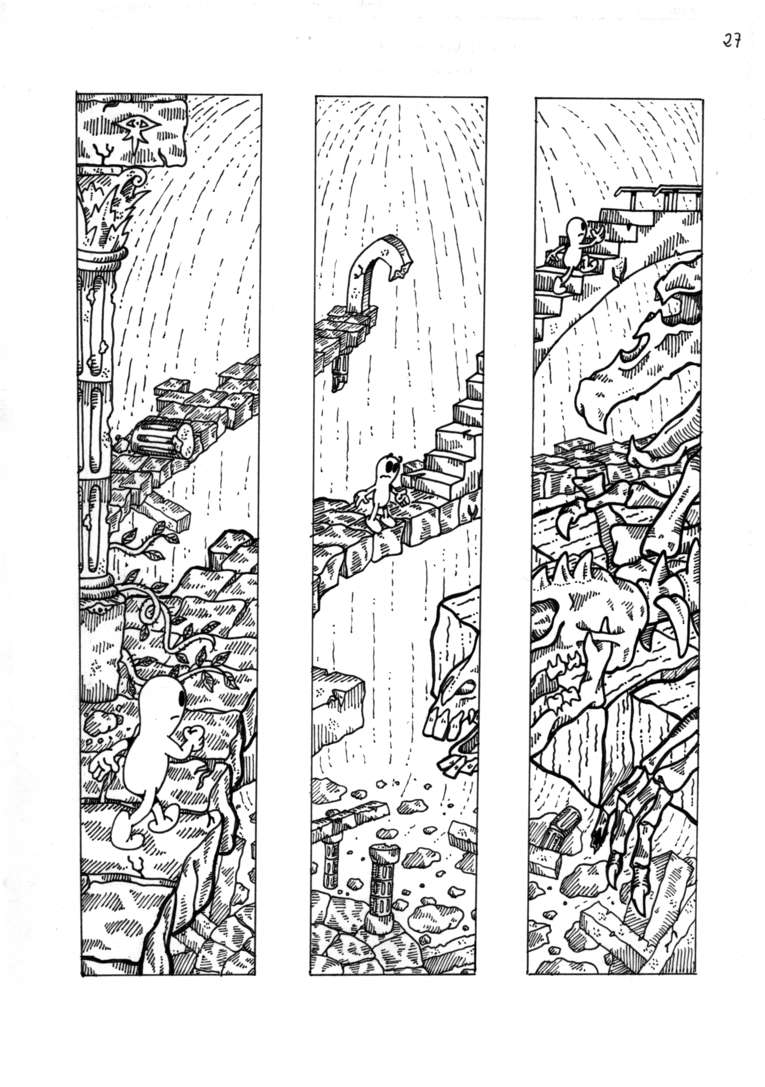Recent posts by users in this instance
0 ★ 0 ↺
Palabra para el sábado, 28 de febrero de 2026:
BATAHOLA
Tb. bataola.Fuente: Palabra del día del diccionario de la lengua española (RAE)
Del it. battagliola.
1. 1. f. Bulla, ruido grande.
Sin.:
+ bulla, bullicio, alboroto, griterío, algarabía, guirigay, escándalo, tumulto, ruido, estruendo, barahúnda, jaleo, follón, tiberio, juerga, jarana, jolgorio.
0 ★ 0 ↺
Palabra para el viernes, 27 de febrero de 2026:
MEMORIALISTA
1. 1. m. y f. Autor de memorias.Fuente: Palabra del día del diccionario de la lengua española (RAE)
2. 2. m. y f. Escritor de memoriales.
Sin.:
+ pendolista.
0 ★ 0 ↺
Palabra para el jueves, 26 de febrero de 2026:
PALEONTOLOGÍA
De paleo-, onto- y -logía.Fuente: Palabra del día del diccionario de la lengua española (RAE)
1. 1. f. Ciencia que estudia los organismos que han existido en el pasado de la Tierra a partir de sus restos fósiles.
0 ★ 0 ↺
Palabra para el miércoles, 25 de febrero de 2026:
OPALINO
1. 1. adj. Perteneciente o relativo al ópalo.Fuente: Palabra del día del diccionario de la lengua española (RAE)
2. 2. adj. De color entre blanco y azulado con reflejos irisados.
3. 3. adj. Dicho del vidrio: opalescente. U. t. c. s. f.
Sin.:
+ opalescente, irisado.
4. 4. adj. Dicho de un objeto: Fabricado con vidrio opalino. U. t. c. s. f.
0 ★ 0 ↺
Palabra para el martes, 24 de febrero de 2026:
DERRELICTO
Del lat. derelictus 'abandonado'.Fuente: Palabra del día del diccionario de la lengua española (RAE)
1. 1. m. Mar. Buque u objeto abandonado en el mar.
0 ★ 0 ↺
Palabra para el lunes, 23 de febrero de 2026:
ALEJANDRITA
1. 1. f. Geol. Variedad de crisoberilo, de color verde o amarillento, violeta por transparencia, utilizada en joyería.Fuente: Palabra del día del diccionario de la lengua española (RAE)
0 ★ 0 ↺
Palabra para el domingo, 22 de febrero de 2026:
MALAIRE
1. 1. m. Ec. Episodio anómalo y pasajero que se sufre al aspirar gases tóxicos.Fuente: Palabra del día del diccionario de la lengua española (RAE)
Sin.:
+ malviento.
0 ★ 0 ↺
Palabra para el sábado, 21 de febrero de 2026:
DEPORTISTA
1. 1. m. y f. Persona que practica algún deporte, por afición o profesionalmente.Fuente: Palabra del día del diccionario de la lengua española (RAE)
Sin.:
+ atleta, jugador, gimnasta.
2. 2. m. y f. Persona aficionada a los deportes o entendida en ellos. U. t. c. adj.
0 ★ 0 ↺
Palabra para el viernes, 20 de febrero de 2026:
BIENINTENCIONADO
Tb. bien intencionado.Fuente: Palabra del día del diccionario de la lengua española (RAE)
1. 1. adj. Que tiene buena intención.
Sin.:
+ benévolo, bueno, sano, benigno, bienhechor.
Ant.:
+ malintencionado.
0 ★ 0 ↺
Palabra para el jueves, 19 de febrero de 2026:
DETECTIVE
Del ingl. detective.Fuente: Palabra del día del diccionario de la lengua española (RAE)
1. 1. m. y f. En algunos países, oficial de policía que investiga crímenes y otros delitos.
Sin.:
+ policía, agente, sabueso.
2. 2. m. y f. detective privado.
Sin.:
+ investigador, sabueso.
0 ★ 0 ↺
Palabra para el miércoles, 18 de febrero de 2026:
VALEROSO
De valer y -oso.Fuente: Palabra del día del diccionario de la lengua española (RAE)
1. 1. adj. Que tiene mucho poder o eficacia.
2. 2. adj. Que tiene valentía.
Sin.:
+ valiente, bravo, intrépido, audaz, osado, animoso, denodado, brioso.
Ant.:
+ cobarde, miedoso.
3. 3. adj. p. us. valioso (‖ que vale mucho).
Sin.:
+ valioso.
![[?]](https://triptico.com/social/palabra/s/9dd433ad887f2d56010901e395a339f7.jpg)
![[?]](https://triptico.com/social/angel/s/4489c37d896224fc004b7759f2960515.jpg)
